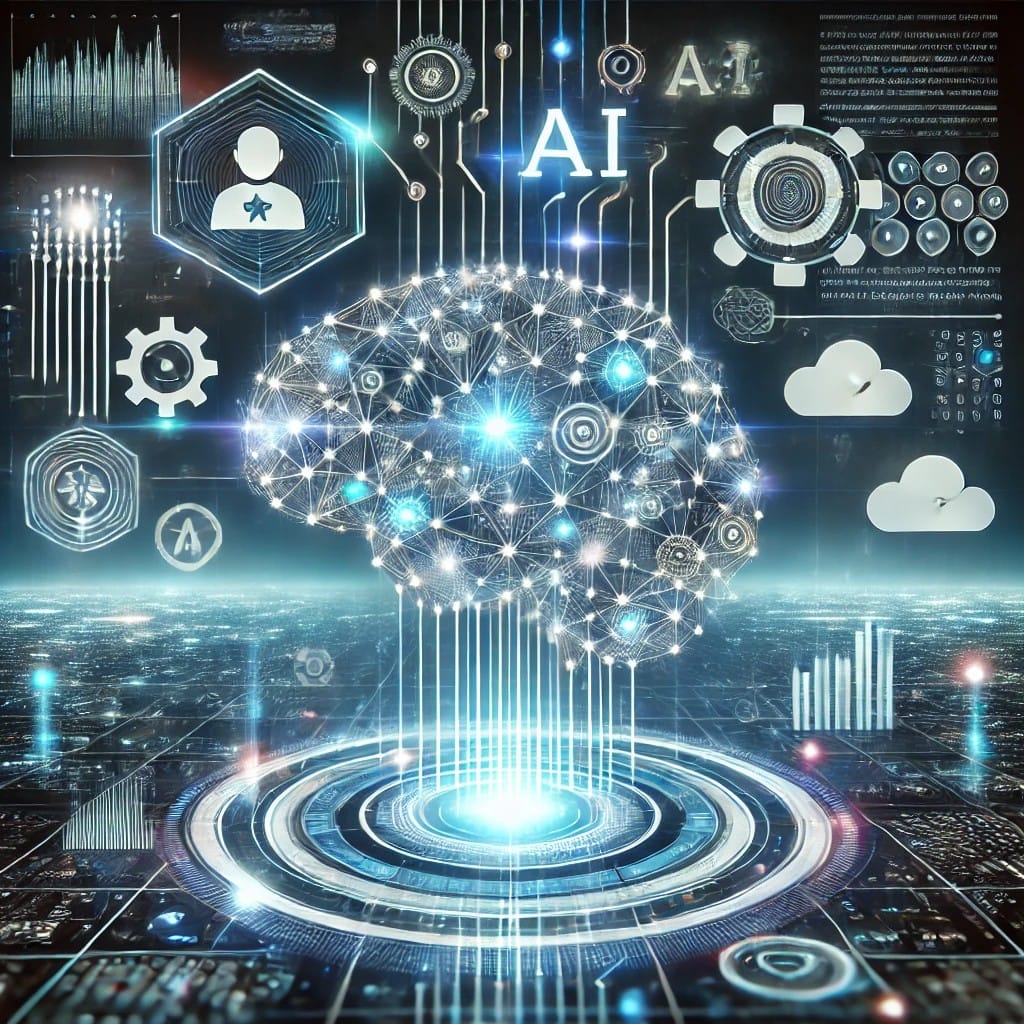Machine Learning (ML) has transformed the way businesses and technology function in today’s digital era. From personalized recommendations on Netflix to self-driving cars, ML plays a crucial role in shaping modern innovations.Machine Learning (ML): Revolutionizing Technology In this blog, we will explore what Machine Learning is, how it works, its applications, and how businesses can leverage it for success.
What is Machine Learning (ML)?
Machine Learning (ML) is a subset of Artificial Intelligence (AI) that enables computers to learn from data and make decisions without explicit programming. Instead of following predefined instructions, ML algorithms analyze patterns, improve over time, and optimize their performance based on real-world experiences. There are three main types of Machine Learning:
1. Supervised Learning – The algorithm is trained on labeled data, meaning the input and output are known. Example: Spam email detection.
2. Unsupervised Learning – The algorithm finds patterns in data without predefined labels. Example: Customer segmentation in e-commerce.
3. Reinforcement Learning – The model learns through trial and error to maximize rewards. Example: AI-powered robotics.

How Machine Learning (ML) Works
1. Data Collection – Gathering structured and unstructured data from various sources. 2. Data Preprocessing – Cleaning, normalizing, and transforming raw data to remove inconsistencies. 3. Feature Engineering – Selecting key attributes that influence predictions.
Machine Learning (ML): Revolutionizing Technology
4.Algorithm Selection – Identifying the most appropriate machine learning model based on the specific problem and data characteristics.
5. Training the Model – Feeding the data into the algorithm for learning. 6. Evaluation & Optimization – Testing model accuracy and refining it for better performance. 7. Deployment – Integrating the model into real-world applications.
Applications of Machine Learning (ML) in Different Industries 1. Healthcare ML is revolutionizing the healthcare industry by improving disease detection, personalized treatments, and medical imaging analysis.Algorithms can predict diseases like cancer at an early stage, enhancing patient care and survival rates.
2. Finance
The financial sector leverages ML for fraud detection, credit scoring, and algorithmic trading.AI-driven risk analysis ensures better decision-making for investments and loans.
3. E-commerce Online platforms like Amazon and Shopify use ML for personalized product recommendations, dynamic pricing, and customer segmentation.Chatbots powered by AI enhance user experience by providing instant support.
4. Marketing & Digital Advertising SEO, PPC, and social media marketing strategies benefit from ML-powered tools.Algorithms optimize ad targeting, predict customer behavior, and improve conversion rates.
5. Cybersecurity ML enhances cybersecurity by detecting potential threats, identifying anomalies in network traffic, and preventing data breaches.AI-driven security systems continuously learn to combat evolving cyber threats. 6. Autonomous Vehicles Self-driving cars rely on ML algorithms to analyze real-time traffic data, recognize obstacles, and make driving decisions without human intervention. 7. Education
Advantages of Machine Learning Machine Learning (ML): Revolutionizing Technology
1. Automation
Reduces human effort by automating repetitive tasks.
2. Enhanced Decision-Making
Provides data-driven insights for better business strategies.
3. Scalability –
Adapts to large datasets for improved performance.
4. Fraud Prevention
Identifies suspicious activities and prevents financial fraud.
5. Improved Customer Experience
Enhances user interaction with AI chatbots and recommendation engines.
Challenges of Machine Learning (ML)
Despite its advantages, ML faces challenges such as: Data Quality Issues – Inaccurate or incomplete data can impact model performance. Computational Power – Requires high processing power for complex algorithms. Bias in Algorithms – ML models may develop biases based on training data. Privacy Concerns – Sensitive data usage raises ethical questions.
Future of Machine Learning (ML) The future of ML looks promising with advancements in Quantum Computing, Edge Computing, and AI-driven automation. Industries will increasingly adopt ML for predictive analytics, personalized user experiences, and efficient decision-making. Businesses investing in ML will gain a competitive edge by leveraging AI-driven insights for growth and innovation.
Conclusion Machine Learning (ML) is transforming technology and businesses across industries. Whether in healthcare, finance, marketing, or cybersecurity, ML-driven innovations continue to drive efficiency, automation, and intelligence. As ML technology evolves, its potential will reshape how we interact with the digital world, making it smarter, faster, and more intuitive. Are you ready to harness the power of Machine Learning (ML) for your business? Stay ahead of the curve by integrating AI-driven solutio